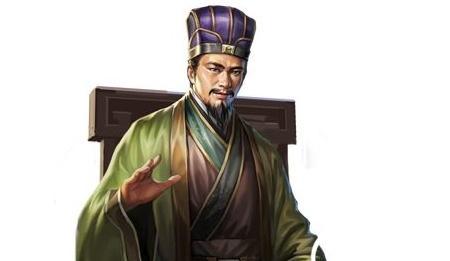
Network illustration
Li Gang, a famous leader of the Anti-Japanese Resistance Faction in the Northern Song Dynasty, died at the age of fifty-seven, and some people said that he died alive. A life of ups and downs, like a bucket tied to a well rope, suddenly up, down, up and down. In the middle of the second year of Masakazu, he was promoted to the rank of inspector of the imperial history, "with words and deeds to the powerful", and was moved to the position of Qiju Lang. He is upright in nature, easy to offend people, and he is hit in the head when he first enters the career.
In the first year of Xuanhe, Shangshu Li Chen Guoshi, "the court's evil words", was demoted to Sha County, Nanjian Prefecture as a small tax official. If the temper does not change, and offends people, give another stick. In the seventh year of Xuanhe, he was appointed as the Young Secretary of State. Jin Bing went south, and Emperor Huizong of Song was timid. Li Gang "stabbed the arm in blood" and asked Emperor Huizong to take the throne as prince. It's rare to be so bold.
Emperor Chinzong ascended the throne. In the first year of Jing Kang, the Jin soldiers crossed the Yellow River, the situation was in crisis, Huizong fled south, and Qinzong also wanted to run. The Manchu Dynasty was full of civil and military weapons, and everyone feared the enemy like a tiger. Dazai Bai shimaka advocated abandoning the city. Li Gang stepped forward, turned the tide, advocated holding out the War of Resistance, and asked for orders in the face of danger: "Your Majesty does not treat his subjects as cowardly, and if he governs the troops, he is willing to repay with death!" Emperor Qinzong was impressed by this and appointed Li Gang as the Right Hand man of Shangshu.
Li Gangfu took office and ordered that all those who abandoned the city and escaped should be executed. Li Gang vigorously deployed troops and horses, deployed troops, and repaired ordnance. The Jin soldiers could not attack the city, so they had to retreat. This is the story of the famous "Li Gang Shou Tokyo".
Li Gang strategized and prepared to fight back on a large scale. Yao Pingzhong was anxious to ask for credit, but suffered a slight setback, and the chancellor Li Bangyan took the opportunity to slander Li Gang, and Emperor Qinzong dismissed Li Gang's officials. When the news spread, the military and civilians in the capital "gathered hundreds of thousands of people unexpectedly, and the voice was moving", asking for Li Gang's life. Emperor Qinzong was helpless and ordered Li Gangfu to be the right hand man of Shangshu and shoulder the responsibility of defending the city. Soon, for the crime of "monopolizing the war and losing time for the teacher", he was demoted to the Ming Dao Palace in Bozhou.
When Jin Bing returned, Emperor Qinzong realized that "peace and discussion were not right", remembered that Li Gang had come, and appointed Li Gang as a senior scholar of the Imperial Palace and a consul of kaifeng.
Emperor Gaozong ascended the throne. Ren Li Gang was made chancellor (Shangshu Right Servant and Zhongshu Shilang). Li Gang was keen on reforming, reforming maladministration, enriching the national treasury, reorganizing armaments, and preparing for the Northern Expedition. His resolute stand of resistance was opposed by Huang Qianshan, Wang Boyan and other capitulationists and regarded as a thorn in the side. He was dismissed from his post and exiled to Ezhou after only seventy-five days of his reign. For more than a decade, Li Gang has been going up and down like this, and has been repeatedly belittled.
The three emperors, Emperor Huizong, Emperor Qinzong, and Emperor Gaozong, one fainted more than the other. Each emperor had a large number of traitors and capitulationists around him, Cai Jing, Tong Guan, Liang Shicheng, Li Yan, Zhu Xun, Li Bangyan, Cai Mao, Tang Ke, Geng Nanzhong, Zhang Bangchang, Wang Boyan, Huang Qianshan, etc., who controlled the government and persecuted Zhongliang.
Li Gang's flesh and blood were fanggang, and his just break in the Great Song could not be eaten, so even if he was full of talent, he could only end in tragedy in the end.